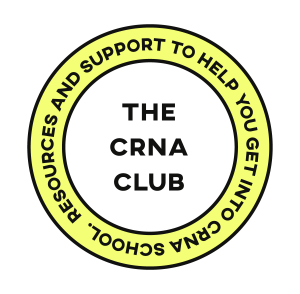Embracing the ICU: 6 Things to Focus On While You're There
Alright, ICU nurses, let's talk about your time spent in the Intensive Care Unit (ICU). In the ICU, we have a golden opportunity to expand our knowledge of complex pathophysiology and pharmacology. So, grab a coffee and get ready to explore the invaluable learning experiences the ICU has in store for us. Here are six key areas you should totally focus on during your time in the ICU.
Vasoactive Infusions: Get in the Know!
1. Let's get real about vasoactive infusions—their mechanism of action, side effects, and all that receptor stuff. These bad boys are the lifeline for maintaining hemodynamic stability in our critical patients. So, dig deep and understand how they work, how they can mess things up, and why we choose specific receptors to target. You need to have a key understanding of these things for your interview, and to build upon in CRNA school.
Ventilator Settings: Numbers that Speak Volumes
2. Ventilators are like our superhero buddies in the ICU, keeping our patients breathing. But those numbers flashing on the screen? They have secrets to tell. Learn what each parameter means, especially when alarms go wild, like that high peak pressure alert. Pro tip: cozy up to the respiratory therapist (RT) for some late-night vent chat over coffee. You'll be amazed at what you'll learn.
RSI: All About the Airway
3. Time to unravel the mysteries of Rapid Sequence Intubation (RSI). Why do we apply cricoid pressure? And have you ever really taken a good look at the structures you see through that Glidescope? Delve into the reasons behind these techniques, because you’re an airway expert in training.
Ultrasound: See the Magic Happen
4. If there's one skill you should totally nail in the ICU, it's ultrasound (US) for peripheral intravenous (PIV) access. Get yourself trained and comfortable with that mighty US machine. It's a game-changer for efficient PIV placement. Trust me, you'll be the hero who saves your patient from multiple needle sticks. Plus, we use the ultrasound a LOT as CRNAs (central lines, regional blocks).
Central Lines: Know Your Landmarks
5. When it comes to central line placement, knowing your landmarks is essential. Each vessel has its own unique entry points, and there are pros and cons to consider for each site. And hey, nobody likes a pneumo surprise during a shift change. So, get familiar with the risks associated with each location and minimize those complications.
Rounding and Smooth Talking
6. Joining rounds is like stepping into a goldmine of learning opportunities. Show that you're interested, ask questions, and let it be known that you've got an inquiring mind. Remember, those attending physicians might be writing you some killer letters of recommendation someday. And hey, use these low-pressure moments to practice your public speaking skills. It's all about getting your point across clearly and concisely without breaking a sweat.
Let's be real—the time we spend in the ICU is priceless. It's a chance to immerse ourselves in the intricate world of pathophysiology and pharmacology. So, seize the moment, embrace the challenges, and soak up the knowledge. Stay curious, my friends, and remember that even failures become opportunities for learning (or as we like to call it, "flearning"). The ICU is where the real action happens, so make the most of it, enhance your skills, and rock the ICU world like a boss.

